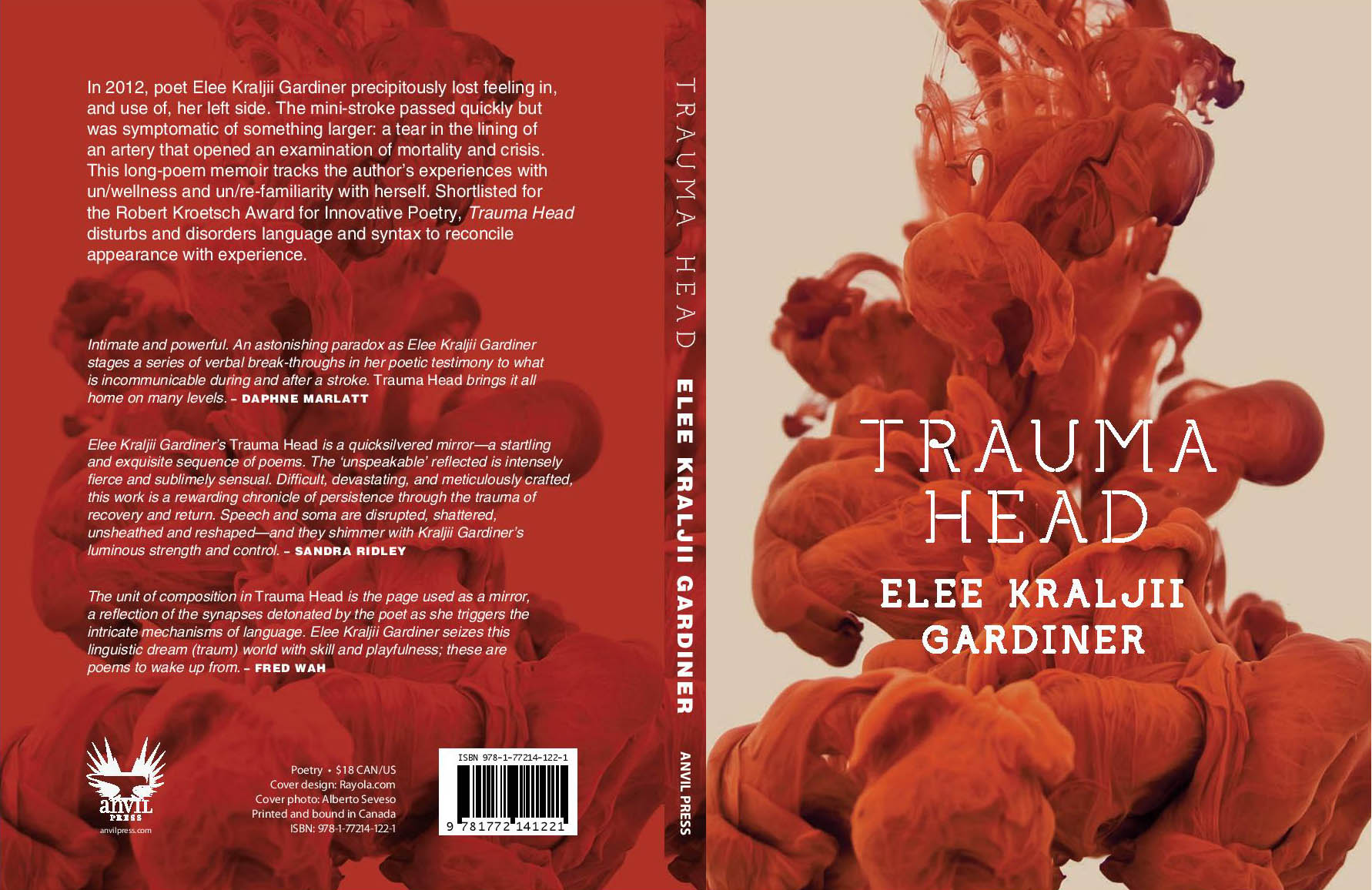
In 2012, poet Elee Kraljii Gardiner precipitously lost feeling in, and use of, her left side. The mini-stroke passed quickly but was symptomatic of something larger: a tear in the lining of an artery known as the tunica intima. This long-poem memoir tracks the author’s experiences with un/wellness and un/re-familiarity with herself. Trauma Head disturbs and disorders language and syntax to reconcile appearance with experience.
CBC Books named Trauma Head one of eight Canadian books to read in November. Order from your local or here on Amazon. (US release date in early 2019)
This book is risky, intelligent and generous.
A new kind of narrative.—Ali Blythe
Trailer by Casey Leung
Elee Kraljii Gardiner’s Trauma Head is a quicksilvered mirror—a startling and exquisite sequence of poems. The ‘unspeakable’ reflected is intensely fierce and sublimely sensual. Difficult, devastating, and meticulously crafted, this work is a rewarding chronicle of persistence through the trauma of recovery and return. Speech and soma are disrupted, shattered, unsheathed and reshaped—and they shimmer with Kraljii Gardiner’s luminous strength and control.
– Sandra Ridley
This book will truly change the way you imagined poetry operates. Intimate and challenging, Trauma Head disrupts language in a manner that evokes a physical response. An absolute MUST read for those who enjoy pushing the boundaries of what written text can communicate
— 49th Shelf
Intimate and powerful. An astonishing paradox as Elee Kraljii Gardiner stages a series of verbal break-throughs in her poetic testimony to what is incommunicable during and after a stroke. Trauma Head brings it all home on many levels.
— Daphne Marlatt
The unit of composition in Trauma Head is the page used as a mirror, a reflection of the synapses detonated by the poet as she triggers the intricate mechanisms of language. Elee Kraljii Gardiner seizes this linguistic dream (traum) world with skill and playfulness; these are poems to wake up from.
— Fred Wah
What was the last great book I read? ‘Trauma Head’ by Elee Kraljii Gardiner. She doesn’t bother explaining, situating or putting a disclaimer for able-bodied folks. Instead, she writes centring disabled and neurodivergent life in such a refreshing way that I had yet to read. She’s the definition of For Us, By Us.
— Mugabi Byenkya
Through this exploration, the book becomes a narrative of sense-making and dissociation, and is underscored by the protagonist’s navigation of the medical system. It’s a text that makes use of slippages and phonetic play of all kinds but still adheres to a narrative of injury and healing, so that a reader can follow the narrative while checking out the risky language use.
— Tanis MacDonald
Press
Chosen as a Book of The Year by England’s The White Review alongside Ilya Kaminsky, Layli Long Soldier and Leanne Betasamosake Simpson.
